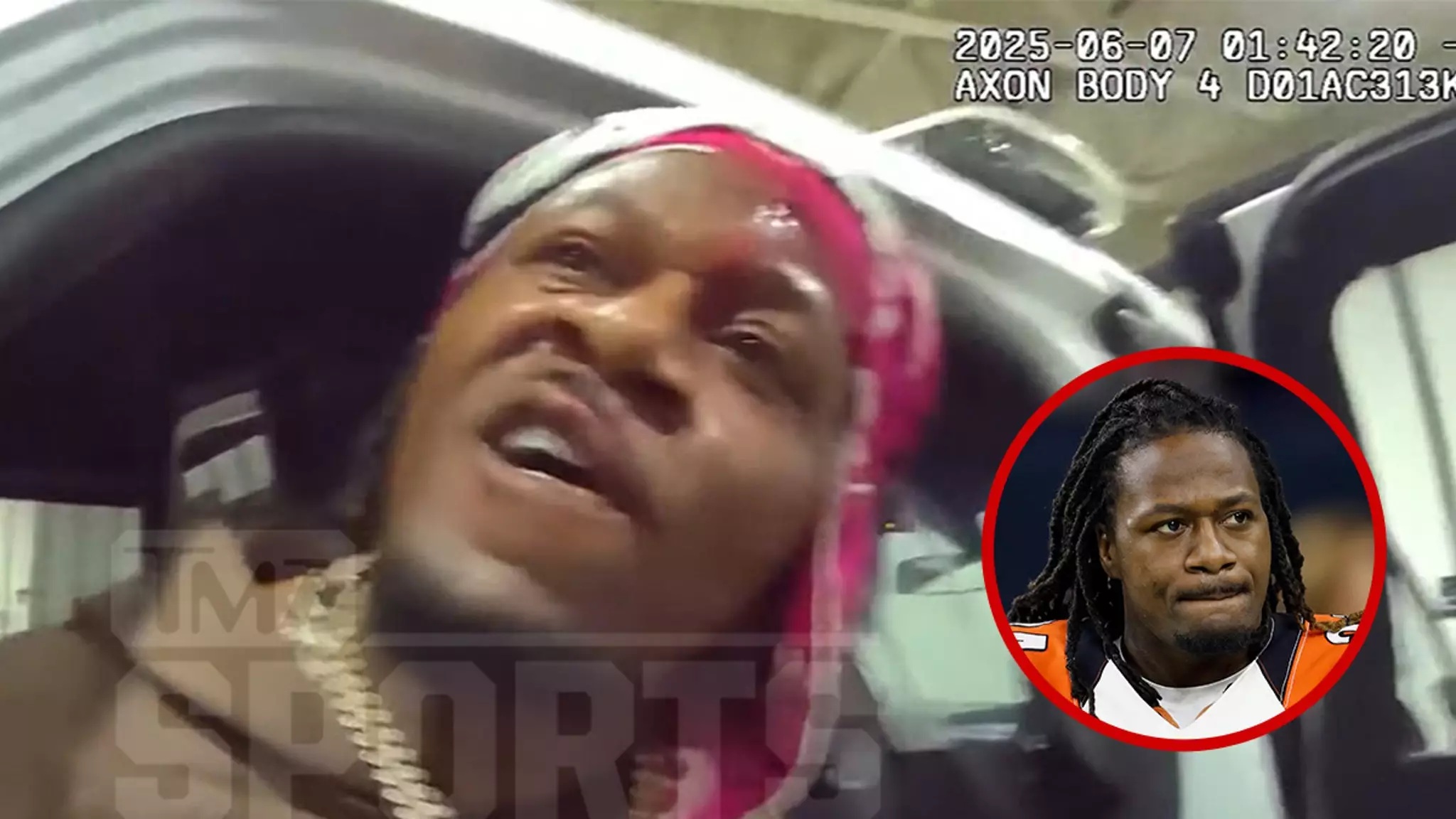In an incident that has drawn both outrage and disbelief, former NFL player Pacman Jones found himself in hot water during a recent public intoxication arrest in Covington, Kentucky. The events unfolded on June 7, when Jones was approached by local law enforcement due to reports of a disturbance stemming from a nearby bar. What could have been a simple cordial exchange spiraled into a volatile confrontation, marked by Jones’ combative attitude and lack of compliance—a troubling reflection on celebrity entitlement.
A Volatile Encounter
As the police body camera footage reveals, the confrontation escalated rapidly. Initially, Jones displayed a willingness to share his perspective on the spat involving a bar employee. However, a sudden pivot in temperament saw him raising his voice and attempting to physically distance himself from the officers. This behavior is not merely a failure to respect authority; it embodies a deeper societal issue of accountability, particularly among public figures who often find themselves above the law in their minds.
His stubbornness not only complicated the situation but also showcased a distinct inability to grasp the gravity of his actions. Instead of cooperating out of respect for law enforcement, he opted for a defiant stance that only further antagonized the officers. The irony of a once-celebrated athlete reduced to such behavior is not lost on the public, raising questions about the pressures celebrities face and how they respond to them.
Downward Spiral: The Consequences of Aggression
Once in custody, Jones’ verbal tirade morphed into explicit insults directed at the officers—a scenario we see all too often. His repetitive use of expletives and belittling remarks only adds fuel to a narrative that suggests a profound disrespect for those who put their lives on the line to maintain public safety. Insults like “shut the f* up” and “suck my d*” reflect an alarming trend where the decorum one might expect from a public figure is replaced by aggressive bravado.
The culmination of Jones’ outburst led to physical aggression, with attempts to strike an officer during transport. This act of violence, particularly the moment where he reportedly connected with the officer’s face, sheds light on a troubling blend of arrogance and aggression. The law does not bend for fame, yet Jones seemed oblivious to this fact, as evidenced by his defiance against the consequences of his actions.
A Mirror to Society
Pacman Jones’ arrest is a striking reminder of the larger conflict between celebrity culture and societal norms. His repetitious defiance highlights an unsettling truth—many individuals in positions of notoriety operate under an assumption of invulnerability, often failing to recognize their role within the broader social framework. Rather than acknowledge the police’s authority in this instance, Jones’ behavior exemplified an irrational sense of superiority, resulting in multiple charges, including assaulting a police officer.
More than just another celebrity misstep, this incident serves as a focal point for discussions on accountability and the repercussions of public behavior. As citizens, we are often left questioning whether fame should shield individuals from the outcomes of their actions, or if it serves as an even greater burden to uphold the standards expected of individuals in the public eye.

